Английский язык для специальных и академических целей: Международные отношения и зарубежное регионоведение. Часть 1 - [17]
7. Although the monarchy undoubtedly represents value for money, its true worth cannot be expressed in financial terms.
8. It [monarchy] is the personification of the [British] nation, the embodiment of the national identity.
1. What, according to Walter Bagehot, made the British monarchy a perfect political system?
2. When, in his opinion, was support for the monarchy likely to decline?
3. Has the monarchy provided continuity and stability throughout the country's history?
4. In what ways did the crown cement the nation before the 19>th century?
5. What part did the monarchy play in the evolution of the British Empire?
6. What was the effect of Britain's victory in the major wars of the 19>th-20>th centuries on the monarchy?
7. In what way have the long-reigning monarchs (Queen Victoria, Elisabeth II) contributed to the political stability in the country?
8. What would have been the significance of the British monarch serving as a sovereign of independent Scotland (should Scotland have become independent)?
1. Do you agree with the author's opinion that the British monarchy has survived because it has always provided the people with a sense of stability and security?
2. Does the British monarchy have anything else going for it?
3. Do you think it is likely to be abolished in a foreseeable future?
VOCABULARY PRACTICE 3
1. able to become strong, happy, or successful again after a difficult situation or event
2. continuing to have a lot of influence for a long time
3. to guess about the possible causes or effects of something, without knowing all the facts or details
4. coming or following one after the other
5. to depend on or be based on one important thing, event, or idea
6. loyalty to a leader, country, belief, etc.
7. after an event in the past
8. forming a necessary part of something
9. to defeat completely and decisively
10. to make or become less valuable or respected (Participle II in the text)
11. unusually large, powerful, or damaging
12. a particular form of political or government organization, or a condition of society in which political organization exists
13. to develop something new, especially a strong relationship with other people, groups, or countries
14. a situation, condition etc. that is close to or similar to a particular one, usually a good one
1. to forge a union, ______________, ________________, _________________
2. tenacious tradition, ______________, _________________, ________________
3. successive governments, ______________, ________________, _____________
4. to tarnish reputation, _____________, ________________, _______________
5. semblance of democracy, _______________, ______________, _____________
6. massive increase, ________________, _________________, _______________
1. Ronald Reagan's reputation was _______________ w h e n the public learned in late 1986 that
members of the President's National Security Council staff had engineered an arms sale to Iran.
2. The greatness of our nation rests on our ability _______________ a union out of our differ
ences and our ability to respect and value our differences.
3. The success of the anti-vandalism policy _______________ on prevention, community en
gagement, timely detection and reporting.
4. Egypt may have reinstated a ________________ of democracy, but that is all. It is likely to be
some years yet before its people again enjoy the right to vote and freedom to express their opinions.
Unit I. UK: from Empire to Democracy
Unit I. UK: from Empire to Democracy
5. A ___________________political system is essential for political stability and internal security,
which in turn are vital for economic development.
6. For many centuries, humans have ____________________that there might be planetary sys
tems around other stars and that there could be extraterrestrial life there.
7. Nelson Mandela's perseverance and ___________________ fight against oppressive rule
led to the eventual liberation of the people of South Africa, and the birth of the Rainbow Nation.
8. The problem with the Egyptian economy, historically, has been the inability of __________
_________rulers to develop a long term economic strategy.
9. In 1970 a student protest on the campus of Mississippi's Jackson State University led to
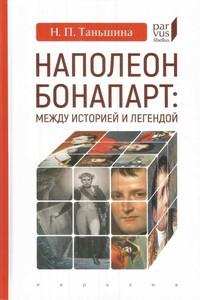
Наполеон притягивает и отталкивает, завораживает и вызывает неприятие, но никого не оставляет равнодушным. В 2019 году исполнилось 250 лет со дня рождения Наполеона Бонапарта, и его имя, уже при жизни превратившееся в легенду, стало не просто мифом, но национальным, точнее, интернациональным брендом, фирменным знаком. В свое время знаменитый писатель и поэт Виктор Гюго, отец которого был наполеоновским генералом, писал, что французы продолжают то показывать, то прятать Наполеона, не в силах прийти к окончательному мнению, и эти слова не потеряли своей актуальности и сегодня.
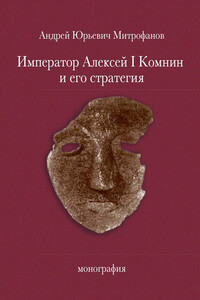
Монография доктора исторических наук Андрея Юрьевича Митрофанова рассматривает военно-политическую обстановку, сложившуюся вокруг византийской империи накануне захвата власти Алексеем Комнином в 1081 году, и исследует основные военные кампании этого императора, тактику и вооружение его армии. выводы относительно характера военно-политической стратегии Алексея Комнина автор делает, опираясь на известный памятник византийской исторической литературы – «Алексиаду» Анны Комниной, а также «Анналы» Иоанна Зонары, «Стратегикон» Катакалона Кекавмена, латинские и сельджукские исторические сочинения. В работе приводятся новые доказательства монгольского происхождения династии великих Сельджукидов и новые аргументы в пользу радикального изменения тактики варяжской гвардии в эпоху Алексея Комнина, рассматриваются процессы вестернизации византийской армии накануне Первого Крестового похода.
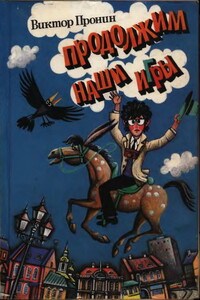
Виктор Пронин пишет о героях, которые решают острые нравственные проблемы. В конфликтных ситуациях им приходится делать выбор между добром и злом, отстаивать свои убеждения или изменять им — тогда человек неизбежно теряет многое.
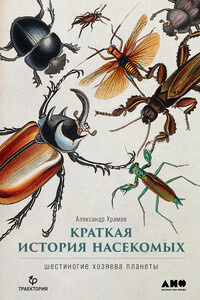
«Любая история, в том числе история развития жизни на Земле, – это замысловатое переплетение причин и следствий. Убери что-то одно, и все остальное изменится до неузнаваемости» – с этих слов и знаменитого примера с бабочкой из рассказа Рэя Брэдбери палеоэнтомолог Александр Храмов начинает свой удивительный рассказ о шестиногих хозяевах планеты. Мы отмахиваемся от мух и комаров, сражаемся с тараканами, обходим стороной муравейники, что уж говорить о вшах! Только не будь вшей, человек остался бы волосатым, как шимпанзе.
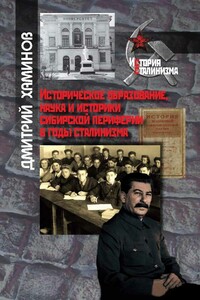
Настоящая монография посвящена изучению системы исторического образования и исторической науки в рамках сибирского научно-образовательного комплекса второй половины 1920-х – первой половины 1950-х гг. Период сталинизма в истории нашей страны характеризуется определенной дихотомией. С одной стороны, это время диктатуры коммунистической партии во всех сферах жизни советского общества, политических репрессий и идеологических кампаний. С другой стороны, именно в эти годы были заложены базовые институциональные основы развития исторического образования, исторической науки, принципов взаимоотношения исторического сообщества с государством, которые определили это развитие на десятилетия вперед, в том числе сохранившись во многих чертах и до сегодняшнего времени.

Эксперты пророчат, что следующие 50 лет будут определяться взаимоотношениями людей и технологий. Грядущие изобретения, несомненно, изменят нашу жизнь, вопрос состоит в том, до какой степени? Чего мы ждем от новых технологий и что хотим получить с их помощью? Как они изменят сферу медиа, экономику, здравоохранение, образование и нашу повседневную жизнь в целом? Ричард Уотсон призывает задуматься о современном обществе и представить, какой мир мы хотим создать в будущем. Он доступно и интересно исследует возможное влияние технологий на все сферы нашей жизни.